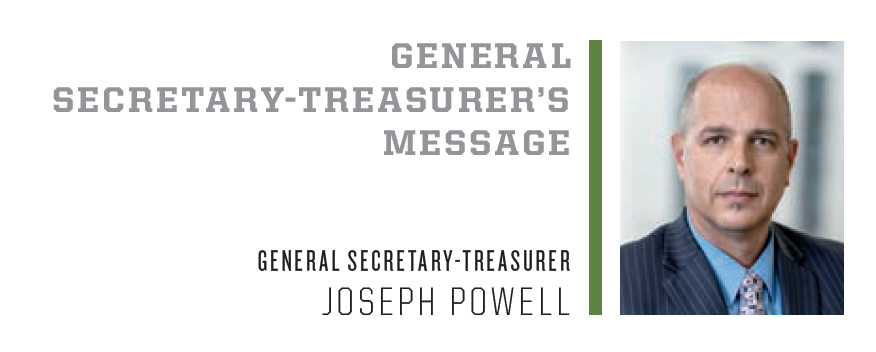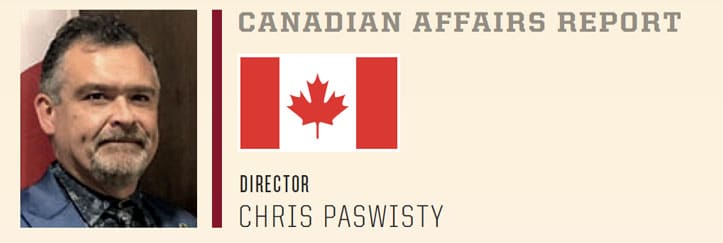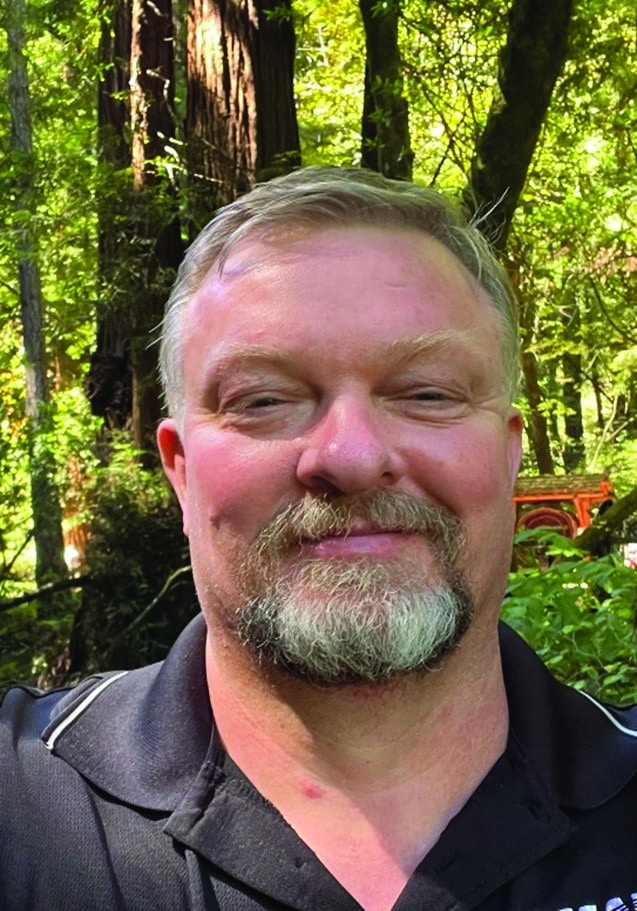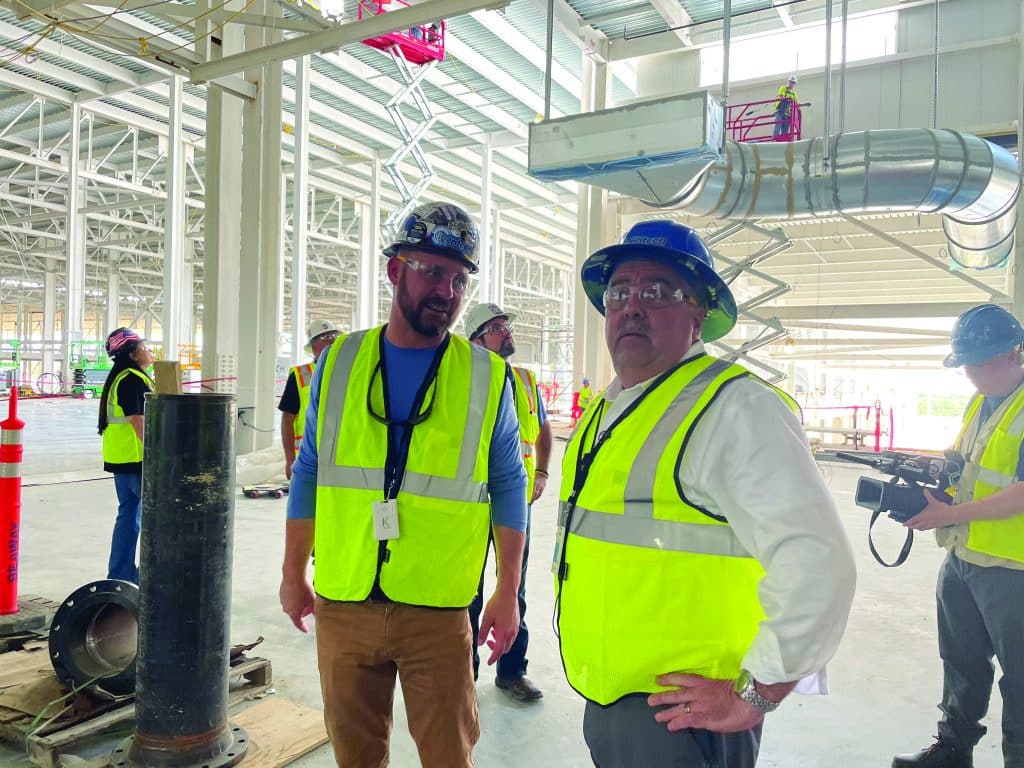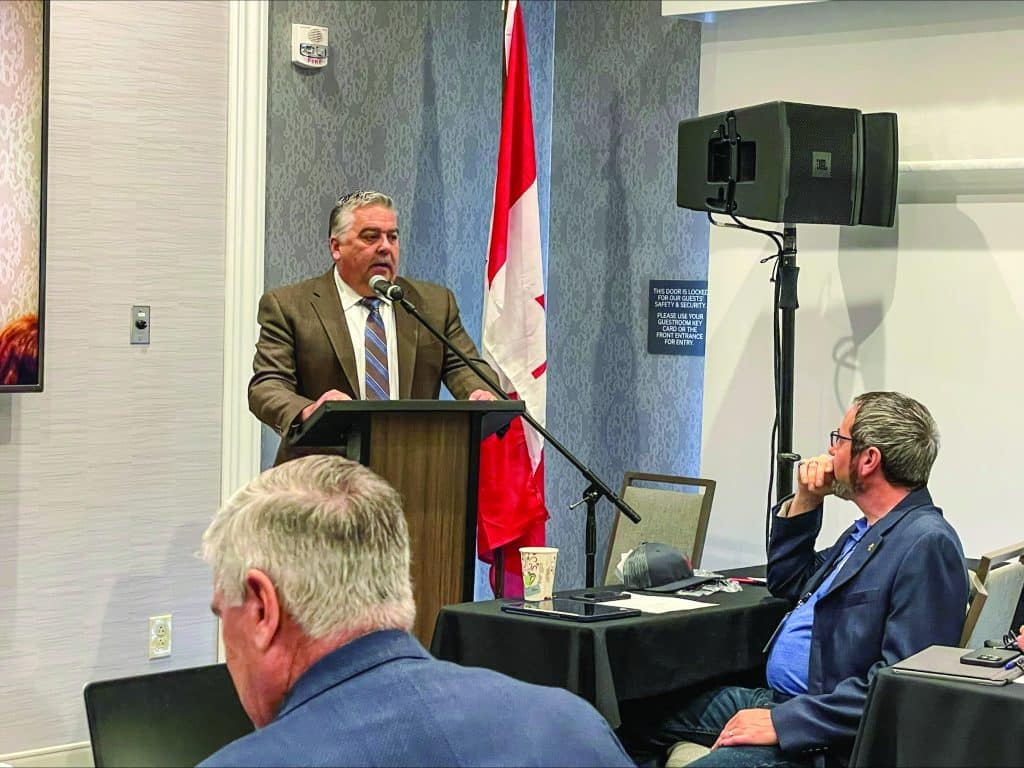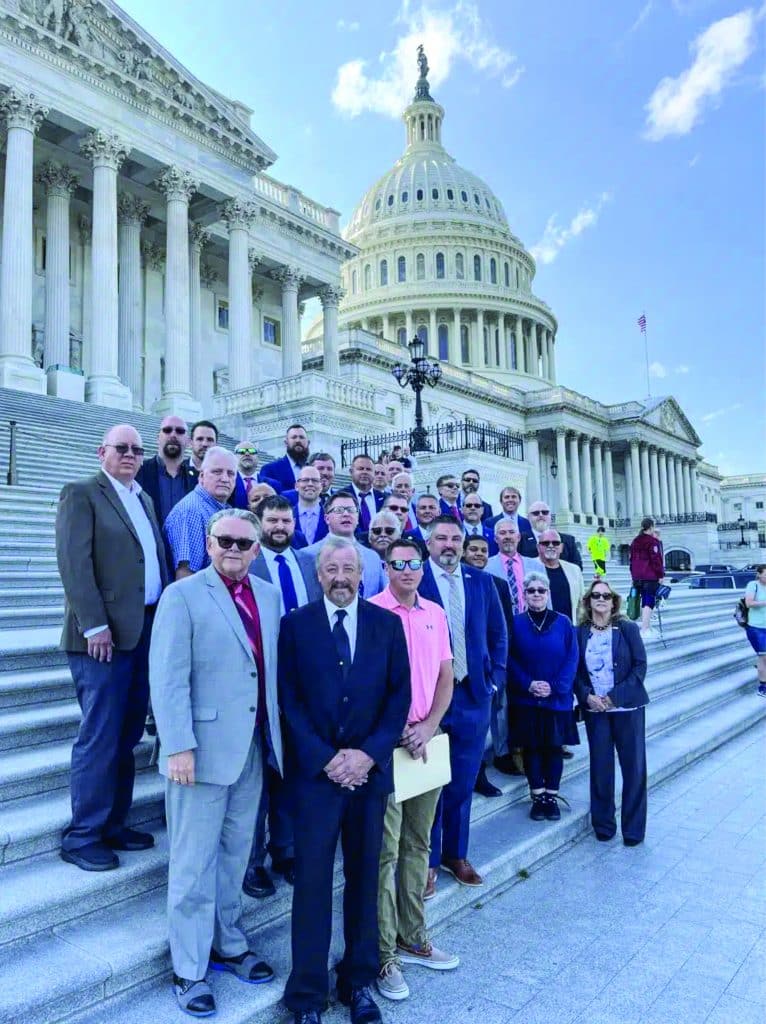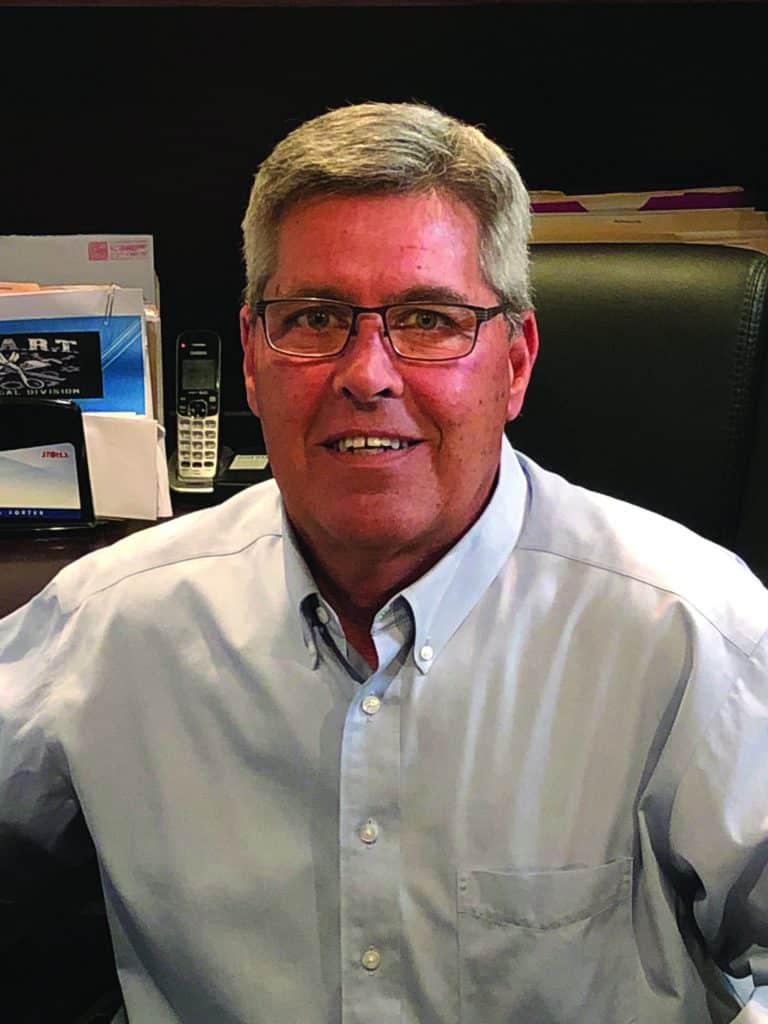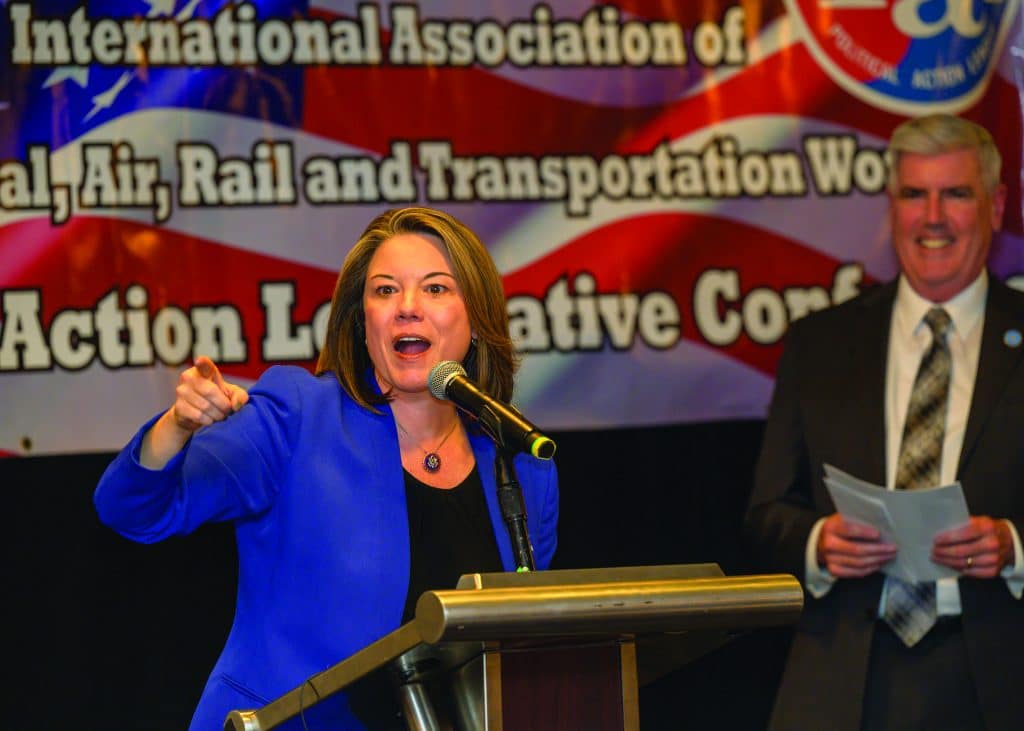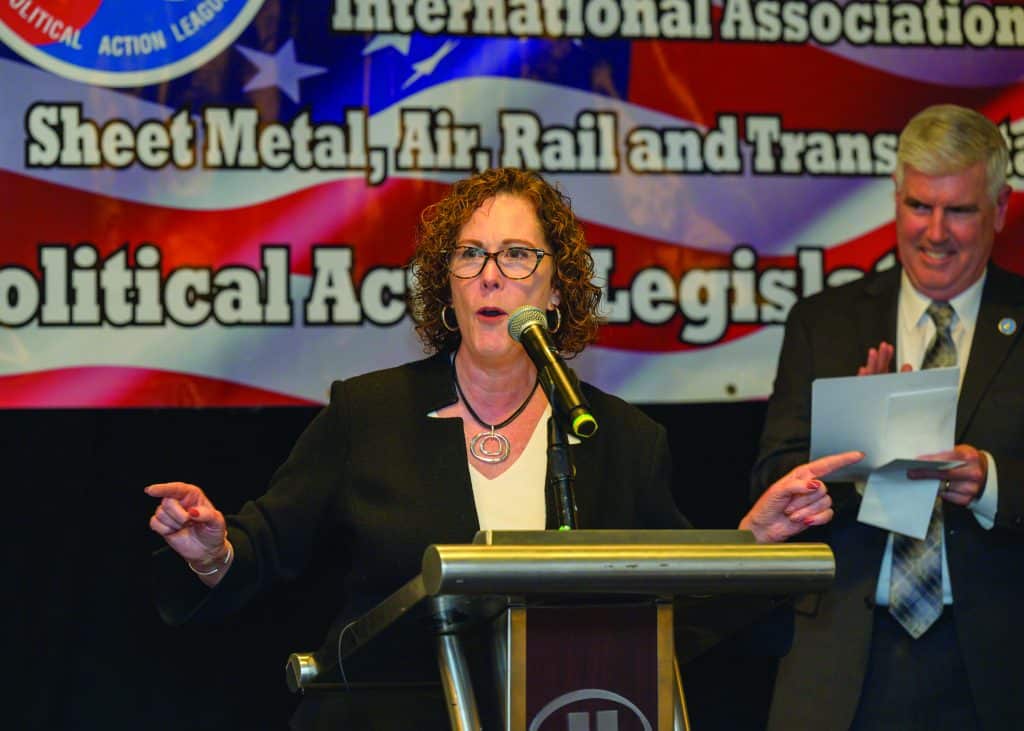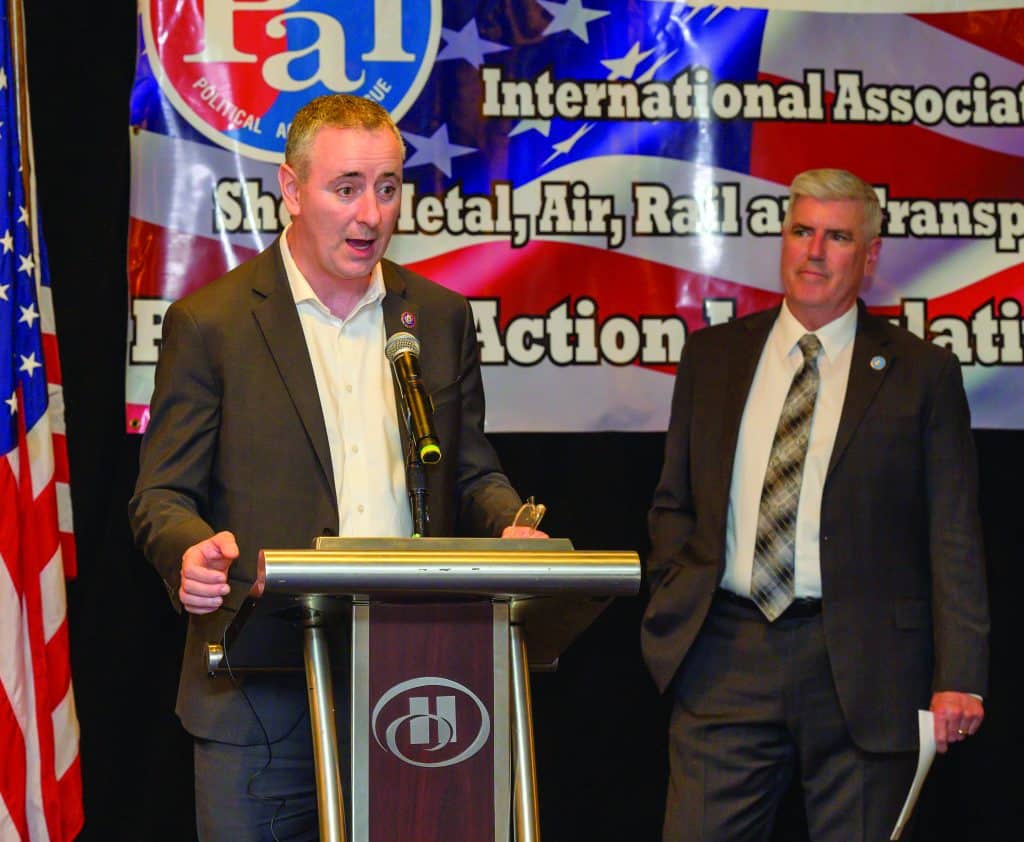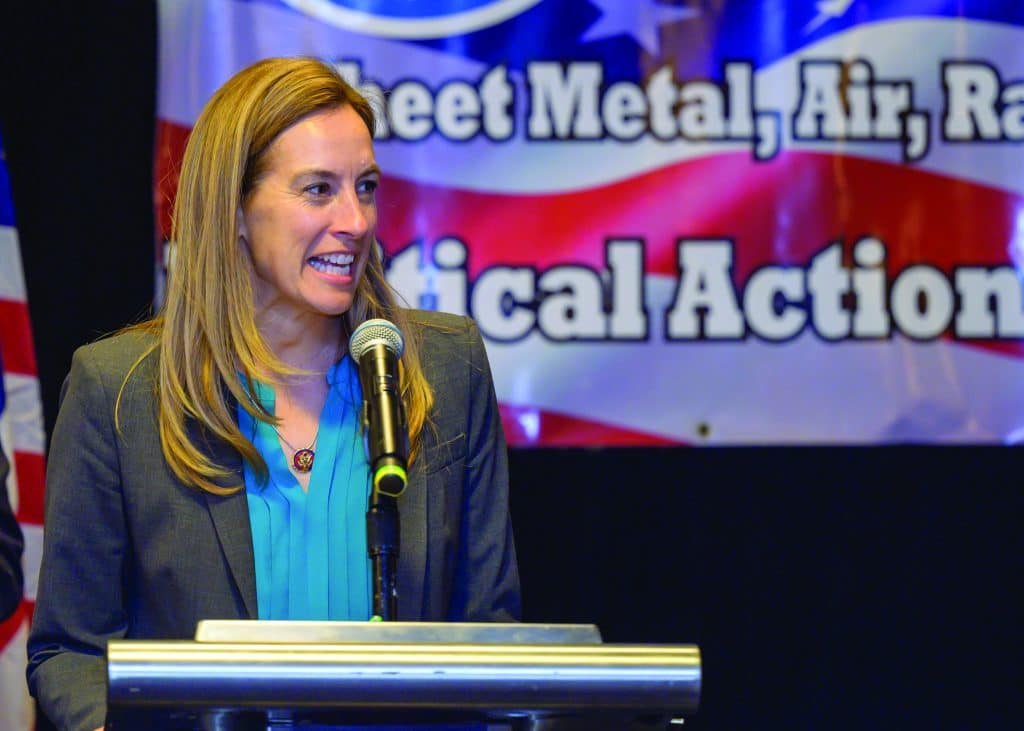Brothers and sisters, I want to start by saying that it is the honor of my lifetime to represent you, the men and women of SMART.
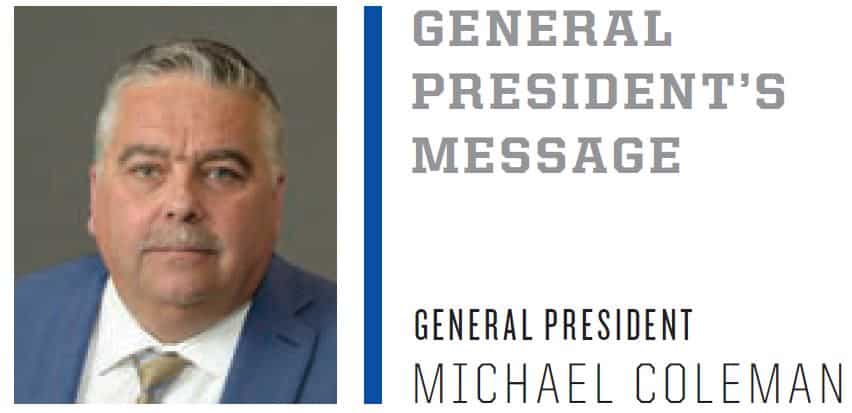
This great union has given me and my family everything we have; I promise to dedicate myself to ensuring every member, current and future, has the same opportunity. And make no mistake: Thanks in no small part to General President Sellers, this is a time of unprecedented opportunity for workers in North America
In the sheet metal industry, we are seeing an extraordinary amount of new work across our two nations: dozens of megaprojects with strong labor standards, the return of manufacturing in America, a new emphasis on indoor air quality and more.
Following the disaster in East Palestine and increased media pressure, the SMART Transportation Division is seeing real movement on rail safety for the first time in years, both at the state level and with the steady progress of the federal Railway Safety Act.
Transit operator safety is making headlines in states across the country, from Los Angeles to Philadelphia, providing the public awareness and momentum to finally secure real change to the unacceptable status quo.
The actions we take today will determine the future for our communities, our families and our union for decades to come. The time is now — let’s take advantage of it.
This is our moment. But only if we act.
The time is now to grow:
Megaprojects are creating workforce demands that are nearly unheard of — and that’s not even mentioning our core work. On both the International and the local level, we need to ensure that we are recruiting and welcoming people from all the communities in which we live and work: women, people of color, LGBTQ+ workers, veterans, the formerly incarcerated and more.
The time is now to get involved:
SMART-TD is on offense. But momentum and media attention are not constant; we cannot wait to make our presence felt in our communities and in the offices of our elected officials. Push your elected representatives and U.S. Senators to vote for a strong, pro-worker Railway Safety Act, and connect with your local union to find out what legislation, regulation or organizing is happening in your area. One example: On April 26, the Federal Transportation Agency (FTA) posted a Notice of Proposed Rule Making (NPRM) regarding public transportation agency safety plans; SMART-TD has worked with bus members and vice presidents to submit a compelling argument on members’ behalf.
The time is now to organize:
We cannot expect to apprentice our way into the growth we need to secure our future. By organizing nonunion workers across all crafts and industries into SMART, we will bolster our collective bargaining power, increase our market share and help communities across our two nations realize the value of union membership: family-sustaining pay, meaningful benefits, a strong pension and dignity on the job.
Brothers and sisters, the actions we take today will determine the future for our communities, our families and our union for decades to come. The time is now — let’s take advantage of it.
In solidarity,

SMART General President Michael Coleman
